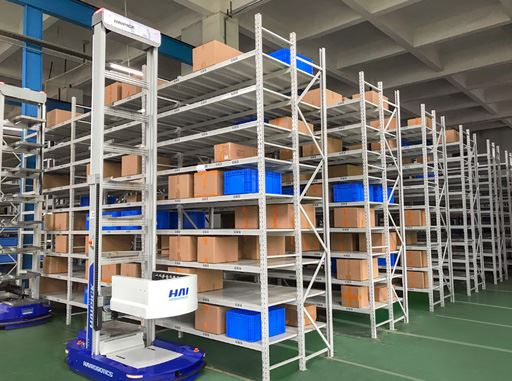Booktopia has joined a growing list of online retailers turning to automation to streamline its supply chain.
Next year, the company plans to trial autonomous robots in its warehouse as part of a proof-of-concept aimed at doubling the amount of stock the online retailer can hold.
The mobile robots developed by Hai Robotics, will be programmed to put away stock when it arrives in the warehouse and pick products from the shelves when they are sold.
The retailer is the first in Australia to deploy the Shenzhen-based company's robots.
The investment will allow the business to maximise its existing real estate, Wayne Baskin, CTO and deputy CEO of Booktopia told iTnews.
The robots can move heavy payloads and reach up to 5m, allowing the warehouse to add more high-density shelving, increasing the distribution centre’s capacity from 800,000 units to 1.8 million units.
“We know that when we have a product in stock we will ship four times as many of that product as when it's not in stock,” Mr Baskin said.
The investment will enable Booktopia to ship up to 100,000 units a day from its distribution centre, up from 60,000 today.
Book sales are soaring
Mr Baskin said daily sales currently exceed 30,000 units and the extra capacity is needed to cater to future growth.
“We know that's going to give us the capacity to really grow in the future and this is really about future-proofing the business.”
Booktopia has seen sales soar throughout the global COVID-19 pandemic.
Earlier this year, the retailer added an additional 3000 sqm of space next door.
Special conveyors were set up through the adjoining wall linking to two new packing machines that can pack 800 parcels each per hour.
Instead of using a fixed-size box, the machines measure the product and fold the box around the parcel, eliminating any bubble wrap.
The smaller parcels minimise wastage and space they occupy in Australia Post delivery vans.
Mr Baskin says the current level of automation won’t have an impact on Booktopia’s permanent staff numbers.
However, the company is expected to eventually scale back its use of labour hire companies now used during busy periods.


